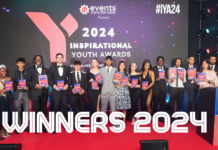Says The British High Commissioner to Pakistan, Philip Barton

The first week back from a holiday brings a fresh perspective and a new impetus to your work. While of course the day-to-day business of diplomacy goes on – as witnessed by the successful visit to Pakistan by the Secretary of State for Defence, Michael Fallon – it is a chance to step back and reflect.
From outside Pakistan, you get a clearer view of how the country is perceived by the wider world. There is no point in mincing words: Pakistan is too often seen as synonymous with terrorism and violence. Every diplomat has their own story to tell of being asked “did they make you go to Pakistan?” or “isn’t that a war zone?” and having to explain what a great place Pakistan is to live in. Nevertheless, this perception is deeply embedded and makes it hard for Pakistan to make the most of the global marketplace and the benefits of global opportunities.
There is of course violence in Pakistani society – few countries have seen more terrorism over the last few years. But my experience of Pakistan is much more the story of everyday life – of family picnics, vibrant clothing, welcoming people and an entrepreneurial spirit. Returning to Islamabad, I am struck by the disconnect between the international narrative on Pakistan and the reality here. I hope that will change. For the UK Government, Pakistan cannot just be a country where we discuss counter-terrorism, military cooperation and development: it is a business partner that could become a thriving economic hub, a destination for British tourists and a country that has deep cultural and personal links with the UK.
I am not the only person in Islamabad taking this view. Last week the Managing Director of the World Bank, Sri Mulyani Indrawati, while visiting Islamabad, said a similar thing: “we frame Pakistan purely in form of challenges instead of opportunities”. This outlook is catching: Daniel Runde writing recently in Forbes magazine about the US-Pakistani relationship argued that “in order to participate in the upside of the Pakistan story, the United States will need to view Pakistan not as a problem to be solved but as a potential partner.”
There are two very real challenges for Pakistan. First, creating a new narrative – countries with more violence and more poverty have a better reputation than Pakistan. If the only stories people hear around the world are stories about violence, death penalties and intolerance, then it so much harder for Pakistani businessmen to sell their wares overseas, government to attract inward investment to make the most of the country’s dynamic workforce, and for Pakistan to punch its weight in international diplomacy. So I hope we will see a new, alternative narrative about Pakistan’s place in the world. What the narrative should be – a young, growing, hardworking country in a strategically important position – pretty much writes itself.
I am reminded of the misrepresentation of Islamabad by the TV programme Homeland. While people in Pakistan rightly criticised the programme for its false characterisation of the city, the underlying issue was that the TV producers felt that they could show Pakistan in that way. They could not have done that about many other cities in Asia without a large proportion of their audience complaining about the preposterousness of it all. The challenge for Pakistan is not that the media all-too-often portrays it in a negative light (the media does that about quite a few countries!) it is that the orthodoxy is to portray Pakistan in that way. The straight and leafy boulevards of Islamabad would have raised more questions with the average viewer of Homeland than their made-up version of Pakistan.
But, of course, a new narrative will only be effective in changing attitudes with the evidence to back it up – and that is the second challenge for Pakistan. This involves hard work. And that – as Sri Mulyani Indrawati outlined – is what needs to happen next. Investment in education, ensuring individuals, groups and communities have equal access to the marketplace, investing in infrastructure and tackling all terrorists will help Pakistan create a new narrative about itself – and make the lives of everyday Pakistanis better. The UK is doing what it can to help and we will continue to talk up the opportunities in Pakistan. But I would like to see every single person with a connection to Pakistan stand up and sell Pakistan, challenge the negativity and, later this week, celebrate national day with real pride and real hope.


































